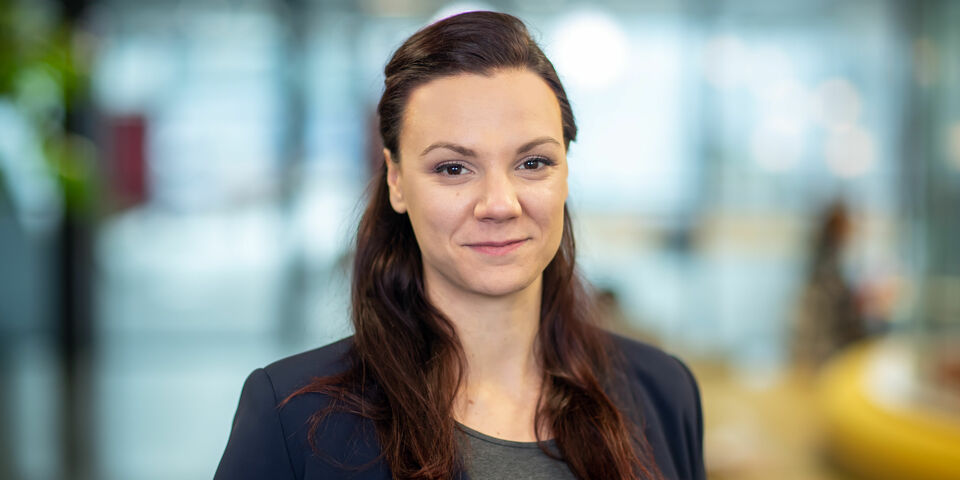Rubicon for photoacoustics in Paris
Italian researcher Beatrice Adelizzi, who obtained her doctorate at the department of Chemical Engineering and Chemistry last year, is awarded a Rubicon grant by the Dutch Research Council (NWO) to conduct research for a period of two years at the École Normale Supérieure in Paris. There, Adelizzi wants to develop photosensitive, switchable molecules for photoacoustics: a technique that combines light and sound to image biological tissue.
Adelizzi has already been working at the École Normale Supérieure, a prestigious university in Paris, since April last year. The Rubicon grant allows her to start her own research, she says over the telephone. “Photoacoustics is a highly multidisciplinary field. We use genetically modified proteins, produced by injecting synthetic DNA into bacteria. The plan is that I’m going to make special dye molecules, which will then bind to those proteins, depending on whether or not they’re illuminated by light.”
Through this effect a sound wave can be triggered by a powerful light pulse, which can then be detected with an ultrasound machine. This makes it possible to visualize all kinds of details within biological tissue, whereas normal optical microscopy can only visualize things on the surface, Adelizzi explains. “Eventually, we want to use this technique to study, for example, the roots of plants in the ground, to better understand how plants function and how they can adjust to climate change.” Incidentally, research into photoacoustics is carried out at TU/e as well, for instance to analyze plaque formation in arteries.
Olympic swimmer
During her doctoral research at TU/e, Adelizzi also worked as an assistant coach of the Dutch synchronized swimming duo. She herself took part in the 2008 Olympics Games in Beijing and even won a bronze medal in that discipline at the world championships. Cursor once interviewed her about her passion for synchronized swimming. She would like to stay involved with that sport as a coach during her stay in Paris. “Not fulltime, of course, but as an advisor for one day a week, just like in the Netherlands. Synchronized swimming is popular in France, so there might be possibilities.”
The Rubicon grant is a personal grant from Dutch research financer NWO, intended for researchers who recently completed their doctorate and who want to gain experience abroad (and, in exceptional circumstances, in the Netherlands). The applicant’s nationality does not play a role, as long as the doctoral research took place in the Netherlands. Incidentally, Adelizzi would like to return to our country to continue her scientific career after her adventure in Paris is over. “I had a great time here during my doctoral research and I don’t necessarily need to return to Italy.”


Discussion